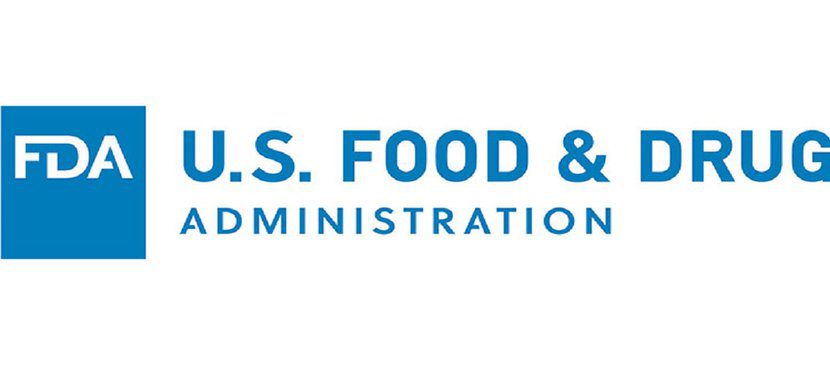
The Food and Drug Administration (FDA) has released a draft of its long-awaited revised guidelines “for the Growing, Harvesting, Packing, and Holding of Produce for Human Consumption Relating to Agricultural Water.”
“The proposed revisions are intended to address stakeholder concerns about complexity and practical implementation challenges while protecting public health,” says Frank Yiannas, FDA deputy commissioner for food policy and response.
As you can expect, the provisions are detailed and complicated, but the most essential point is that previous provisions requiring microbial testing for preharvest agricultural water have been replaced by more comprehensive “systems-based agricultural water assessments,” in the words of the draft statement.
“These proposed revisions to the produce safety regulation, if finalized, would more comprehensively address a known route of microbial contamination that can lead to preventable foodborne illness that is a significant public health problem,” says the statement.
Industry response appears to be cautiously favorable.
Jennifer McEntire, senior vice president for food safety and technology for the United Fresh Produce Association BB #:145458, says, “We are still working our way through the details of the proposed rule but overall feel that it represents an approach to managing agricultural water that would allow the incorporation of new scientific information, and the use of tools to manage risks, as they evolve over time.
“The proposed approach moves away from the ‘one size fits all’ and ‘check the box’ approaches. We’ve got a member group that’s ready to start working on comments and we look forward to continued dialogue with FDA,” McEntire adds.
A press release from the Leafy Greens Marketing Agreement (LGMA) BB #:210653 states, “The LGMA Food Safety Programs in Arizona and California have conducted an initial review of FDA’s proposal and have determined that the LGMA requirements appear to meet and exceed what is in the proposed new rule.”
LGMA has released a table comparing its provisions with those in the draft guidelines. LGMA and FDA water requirements comparison
Coral Beach, writing in Food Safety News, observes, “The current water testing rule drew a lot of pushback from industry, including the leafy greens growers, because of its perceived costs and inconveniences. With the new proposed rule, testing could be one element of a mitigation strategy designed by individual growers.”.
One central factor in assessment will be proximity to animal operations, “including grazing, livestock operations, and wildlife intrusion,” the statement stresses. These have generally been acknowledged to be chief culprits in recent outbreaks of microbial contamination of leafy greens.
“If you determine that your agricultural water is not safe or is not of adequate sanitary quality for intended use(s), then you must immediately discontinue use(s) and take corrective measures before resuming use of the water for pre-harvest activities,” the statement says.
“If you determine there are no known or reasonably foreseeable hazards for which mitigation is reasonably necessary,” it adds, “then you must regularly (at least once each year) inspect and adequately maintain the water system(s).”
The FDA is currently accepting comments on the proposed measures. The public has 120 days from the publication of the statement in the Federal Register (December 6, 2021) to submit comments.
The Food and Drug Administration (FDA) has released a draft of its long-awaited revised guidelines “for the Growing, Harvesting, Packing, and Holding of Produce for Human Consumption Relating to Agricultural Water.”
“The proposed revisions are intended to address stakeholder concerns about complexity and practical implementation challenges while protecting public health,” says Frank Yiannas, FDA deputy commissioner for food policy and response.
As you can expect, the provisions are detailed and complicated, but the most essential point is that previous provisions requiring microbial testing for preharvest agricultural water have been replaced by more comprehensive “systems-based agricultural water assessments,” in the words of the draft statement.
“These proposed revisions to the produce safety regulation, if finalized, would more comprehensively address a known route of microbial contamination that can lead to preventable foodborne illness that is a significant public health problem,” says the statement.
Industry response appears to be cautiously favorable.
Jennifer McEntire, senior vice president for food safety and technology for the United Fresh Produce Association BB #:145458, says, “We are still working our way through the details of the proposed rule but overall feel that it represents an approach to managing agricultural water that would allow the incorporation of new scientific information, and the use of tools to manage risks, as they evolve over time.
“The proposed approach moves away from the ‘one size fits all’ and ‘check the box’ approaches. We’ve got a member group that’s ready to start working on comments and we look forward to continued dialogue with FDA,” McEntire adds.
A press release from the Leafy Greens Marketing Agreement (LGMA) BB #:210653 states, “The LGMA Food Safety Programs in Arizona and California have conducted an initial review of FDA’s proposal and have determined that the LGMA requirements appear to meet and exceed what is in the proposed new rule.”
LGMA has released a table comparing its provisions with those in the draft guidelines. LGMA and FDA water requirements comparison
Coral Beach, writing in Food Safety News, observes, “The current water testing rule drew a lot of pushback from industry, including the leafy greens growers, because of its perceived costs and inconveniences. With the new proposed rule, testing could be one element of a mitigation strategy designed by individual growers.”.
One central factor in assessment will be proximity to animal operations, “including grazing, livestock operations, and wildlife intrusion,” the statement stresses. These have generally been acknowledged to be chief culprits in recent outbreaks of microbial contamination of leafy greens.
“If you determine that your agricultural water is not safe or is not of adequate sanitary quality for intended use(s), then you must immediately discontinue use(s) and take corrective measures before resuming use of the water for pre-harvest activities,” the statement says.
“If you determine there are no known or reasonably foreseeable hazards for which mitigation is reasonably necessary,” it adds, “then you must regularly (at least once each year) inspect and adequately maintain the water system(s).”
The FDA is currently accepting comments on the proposed measures. The public has 120 days from the publication of the statement in the Federal Register (December 6, 2021) to submit comments.
Richard Smoley, contributing editor for Blue Book Services, Inc., has more than 40 years of experience in magazine writing and editing, and is the former managing editor of California Farmer magazine. A graduate of Harvard and Oxford universities, he has published 12 books.



